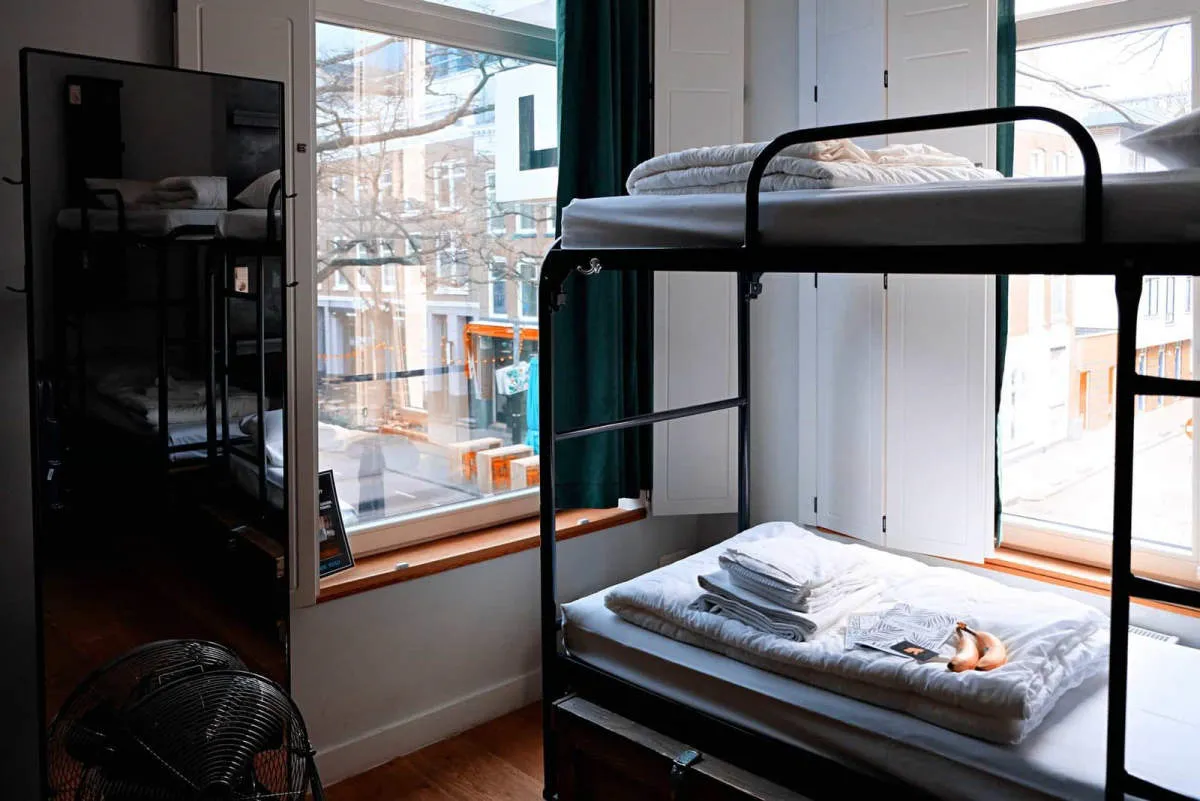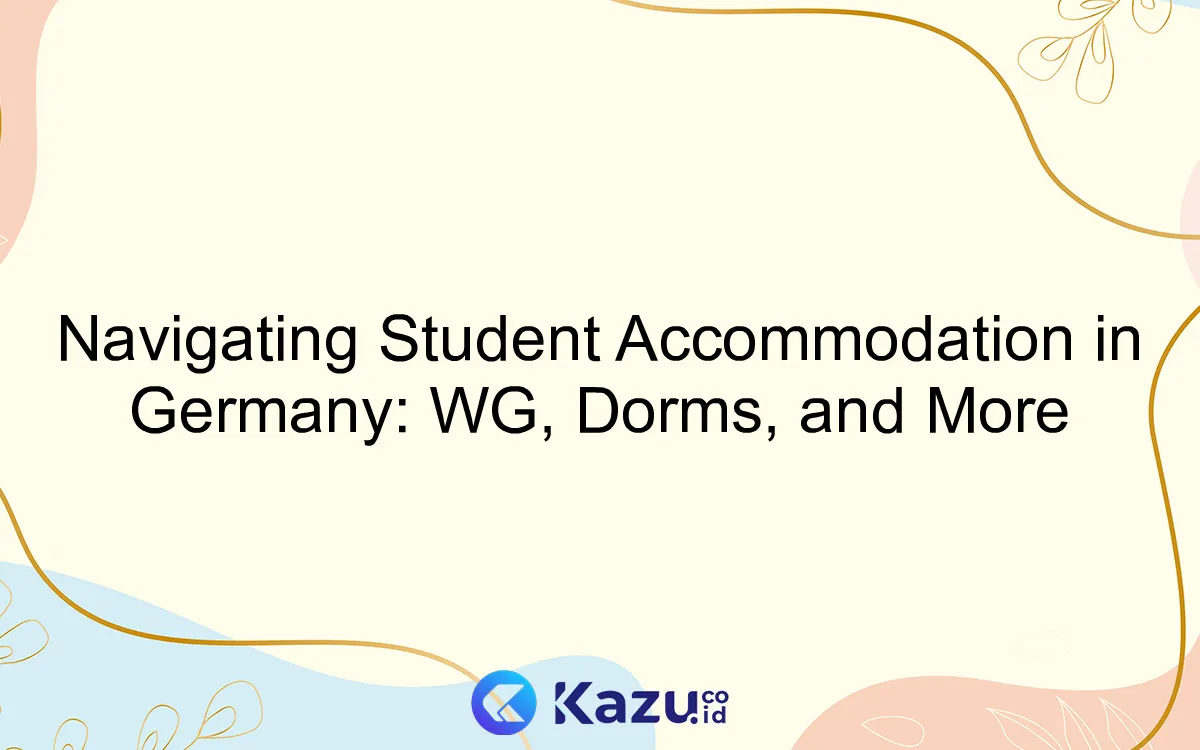Are you planning to study in Germany and searching for the best student accommodation options? In this article, we will explore the various possibilities for students, including Wohnungs Gemeinschaft (WG), dormitories, and more. Discover how to navigate the German housing market and find the perfect place to call home during your study abroad adventure.
Understanding Different Types of Student Accommodation in Germany
When it comes to studying in Germany, one of the important factors to consider is finding the right accommodation. Germany offers various types of student accommodation that cater to different needs and preferences. Here are some common options:
1. Wohngemeinschaft (WG)
A Wohngemeinschaft, or WG for short, refers to a shared flat where multiple students live together. This type of accommodation allows students to share rent and living expenses, making it an affordable option. WGs promote interaction and provide a social environment for students.
2. Student Dormitories
Student dormitories, or Studentenwohnheim in German, are buildings that offer rooms exclusively for students. These dorms are usually managed by the universities or student services organizations. Dormitories provide a sense of community and often have facilities such as study rooms, communal kitchens, and laundry rooms.
3. Private Apartments
Private apartments are individual units available for rent. These apartments can be furnished or unfurnished, depending on the landlord. While private apartments offer more privacy and independence, they can be more expensive compared to other options.
4. Homestays
Homestays involve living with a local family in their home. This option provides an immersive cultural experience and an opportunity to practice the German language. Homestays can vary in terms of rules and expectations set by the host family.
It’s important to research and consider your preferences and budget before choosing the type of accommodation that suits you best. Keep in mind factors such as location, proximity to your university, and available amenities. Additionally, early planning and applying for accommodation in advance will increase your chances of securing a desirable place to stay.

A WG, or Wohngemeinschaft, is a popular housing option among students in Germany. Living in a shared apartment can have its advantages and disadvantages. Let’s take a look at the pros and cons of living in a WG:
Pros:
- Cost Sharing: One of the biggest advantages of living in a WG is the ability to share expenses. Rent and utilities are divided among the roommates, making it more affordable compared to renting an entire apartment alone.
- Social Interaction: Living in a WG provides opportunities for socializing and making new friends. It allows you to connect with people from different backgrounds and cultures, creating a supportive community.
- Sharing Responsibilities: In a WG, you can share household chores and responsibilities with your roommates. This can help lighten the workload and create a more harmonious living environment.
- Furniture and Equipment: WG apartments are often already furnished and equipped. This saves you the hassle and expense of buying everything from scratch.
Cons:
- Less Privacy: Living in a WG means that you will have less privacy compared to living alone. You will have to share common areas, such as the kitchen and bathroom, with your roommates.
- Conflicts and Differences: With different personalities and habits, conflicts may arise. Disagreements over cleanliness, noise, or sharing resources can cause tension within the WG.
- Dependency on Others: Living in a shared apartment means relying on others for certain things. If your roommates forget to pay their share of the rent or utilities, it can cause stress and inconvenience for you.
- Less Control over Living Environment: You may have limited control over the decoration and arrangement of the apartment. Decisions regarding shared spaces often involve compromises with your roommates.
Living in a WG has its own set of pros and cons. It is important to consider your own preferences and lifestyle before deciding if it is the right option for you. Now that you know the advantages and disadvantages of living in a WG, you can make an informed decision when navigating student accommodation in Germany.
Applying for On-Campus and Off-Campus Dormitories
When it comes to student accommodation in Germany, there are various options available, including on-campus and off-campus dormitories. Both options have their advantages and it’s important to understand the application process for each.
On-Campus Dormitories
On-campus dormitories are located within the university premises and offer a convenient living arrangement for students. To apply, you usually need to contact the Studentenwerk (student services organization) responsible for managing dormitories in your university. They will provide you with the necessary application forms and guidelines.
It’s crucial to submit your application well in advance, as demand for on-campus dorms is high. In some cases, a waiting list may be involved, so it’s always recommended to apply early. Make sure to carefully fill out all the required paperwork and provide any necessary documents, such as proof of enrollment and financial information.
Off-Campus Dormitories
Off-campus dormitories, also known as Studentenwohnheime, are privately owned student housing facilities located near universities. These dormitories offer similar benefits to on-campus options, but often have a more independent atmosphere.
To apply for an off-campus dormitory, you will generally need to directly contact the housing provider or landlord. Keep in mind that the application process and requirements may vary depending on the specific dormitory. Make sure to inquire about the application deadlines and submit all the necessary documents.
Considerations for both options
Whether applying for on-campus or off-campus dormitories, there are a few factors to consider:
- Availability: Check the availability of dormitory rooms as early as possible.
- Location: Consider the proximity of the dormitory to your university, public transportation, and other amenities.
- Cost: Understand the rental fees, deposits, and additional costs associated with the dormitory.
- Amenities: Find out what amenities are included, such as internet access, common areas, laundry facilities, and kitchen access.
Remember, it’s important to research and compare the options available to find the best fit for your needs. Good luck with your student accommodation application!
Tips for Finding Affordable and Convenient Housing Options
When it comes to navigating student accommodation in Germany, there are several options available, including WG (Wohngemeinschaften or shared apartments) and dormitories. Here are some tips to help you find affordable and convenient housing options:
1. Start your search early
Give yourself plenty of time to find a suitable accommodation. The demand for student housing in Germany is high, especially in popular cities like Berlin, Munich, and Hamburg. Start your search at least a few months in advance to secure the best options.
Living in a WG can be an excellent way to save money and meet new people. It involves sharing an apartment with other students, dividing the rent and utilities. Websites like WG-Gesucht and Studenten-WG can help you find available shared apartments.
3. Explore dormitory options
Many universities in Germany offer dormitories (Studentenwohnheim) specifically for students. Dorms are often located close to campus and provide a social environment for students. Contact your university’s student services department for information on available dormitory options.
4. Check online platforms
Utilize various online platforms like ImmobilienScout24, eBay Kleinanzeigen, and Facebook groups dedicated to accommodation. These platforms frequently have listings for apartments and rooms available for rent.
5. Network and ask for recommendations
Speak to other students, professors, or university staff members who may have insights or recommendations on affordable housing. They may know of available options or be able to connect you with potential roommates.
6. Consider your budget and location
Before making a decision, evaluate your budget and prioritize what is important to you. Consider factors such as rent, proximity to university, public transportation options, and nearby amenities.
Remember, finding the right accommodation may take time and effort, but with careful planning and research, you can find an affordable and convenient housing option that suits your needs as a student in Germany.
Conclusion
In conclusion, when it comes to student accommodation in Germany, there are various options to consider. From shared flats (WG) to student dorms, each comes with its own advantages and disadvantages. Ultimately, it is important for students to carefully evaluate their preferences, budget, and needs in order to make the best decision for a comfortable and conducive living environment during their studies in Germany.
